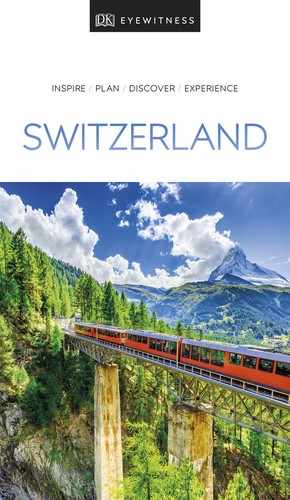g Need to Know g Contents
Before
You Go
Forward planning is essential to any successful trip. Be prepared for all eventualities by considering the following points before you travel.
Passports and Visas
EU nationals and citizens of the UK, US, Canada, Australia and New Zealand need a valid passport but do not need visas for stays of up to three months. Consult your nearest Swiss embassy or Switzerland’s Online Visa System if you are travelling from outside these areas.
Online Visa System
Travel Safety Advice
Visitors can get up-to-date travel safety information from the US Department of State, the UK Foreign and Commonwealth Office and the Australian Department of Foreign Affairs and Trade.
Australia
UK
∑ gov.uk/foreign-travel-advice
US
Customs Information
Limits vary if travelling from outside the EU, so check restrictions before travelling. An individual is permitted to carry the following within the EU for personal use:
Tobacco products
250 cigarettes or 250 cigars or 250g of other tobacco products.
Alcohol
5 litres up to 18 per cent volume and 1 litre over 18 per cent volume.
Cash
If you plan to enter or leave Switzerland with 10,000 Swiss francs or more in cash (or equivalent in other currencies) you must declare it to the customs authorities on entry and exit to, or transit through, Switzerland.
Insurance
It is wise to take out an insurance policy covering theft, loss of belongings, medical problems, cancellation and delays.
Residents of countries in the European Union and the European Economic Community can claim free medical treatment in Switzerland with an EHIC (European Health Insurance Card). Visitors from outside these areas must arrange their own private medical insurance. You may have to pay up front for medical treatment.
EHIC
∑ gov.uk/European-health-insurance-card
Vaccinations
No inoculations are required for Switzerland.
Money
Major credit and debit cards are accepted in most shops and restaurants; prepaid currency cards and American Express are accepted in some; carry cash for smaller items. Contactless payments are becoming more widely accepted. Cash machines are frequently found at banks and at various points in town and city centres.
Booking Accommodation
Switzerland offers accommodation to suit all tastes and budgets, from five-star hotels, farm stays and mountain refuges to family-run B&Bs and budget hostels. Lodgings fill up quickly and prices are often inflated, most notably in the mountain regions during ski season (December to April), when advance booking is essential. The website of the Swiss Hotel Association offers a comprehensive list of accommodation.
Swiss Hotel Association
Travellers with Specific Needs
Switzerland offers a high standard of facilities for travellers with specific needs. Most main sights and public buildings have wheelchair access. Amenities in more rural areas may be limited, so it is always worth calling ahead to check that your requirements will be met.
For assistance at any of the 170 suitably equipped stations on the Swiss rail network, phone the SBB Call Centre Handicap one hour before departure (or three working days beforehand for international travel). Mietauto has details on adapted hire vehicles.
Switzerland Tourism can provide full details of suitable hotel facilities for guests with specific needs. The website of Mobility International Switzerland (MIS) provides further details for travellers with impaired mobility.
Mietauto
Mobility International Switzerland (MIS)
SBB Call Centre Handicap
§ 0800 007 102 (within Switzerland, toll-free), +41 51 225 78 44 (from abroad, subject to charge)
Switzerland Tourism
Language
Switzerland has four national languages – French, German, Italian and Romansh. Although English is not an official language, it is often used to bridge the language divides (especially in cities), and much official documentation is available in English. German is spoken mostly in the east, French mostly in the west, and Italian mostly in the southern canton of Ticino and the southern parts of neighbouring Graubünden. Romansh is spoken only in the canton of Graubünden.
Closures
Monday
Some shops, museums and tourist attractions are closed on Monday mornings or for the entire day.
Thursday
Some cities have late-night shopping on Thursdays until 8pm, including Bern, Geneva and Zürich.
Saturday
Most post offices close at 11am; most shops close at noon.
Sunday
Most shops and businesses are closed for the day.
Public holidays
Most shops, churches, museums and restaurants either close early or all day.
Need to know Before You Go
At a Glance
Currency
Swiss Franc
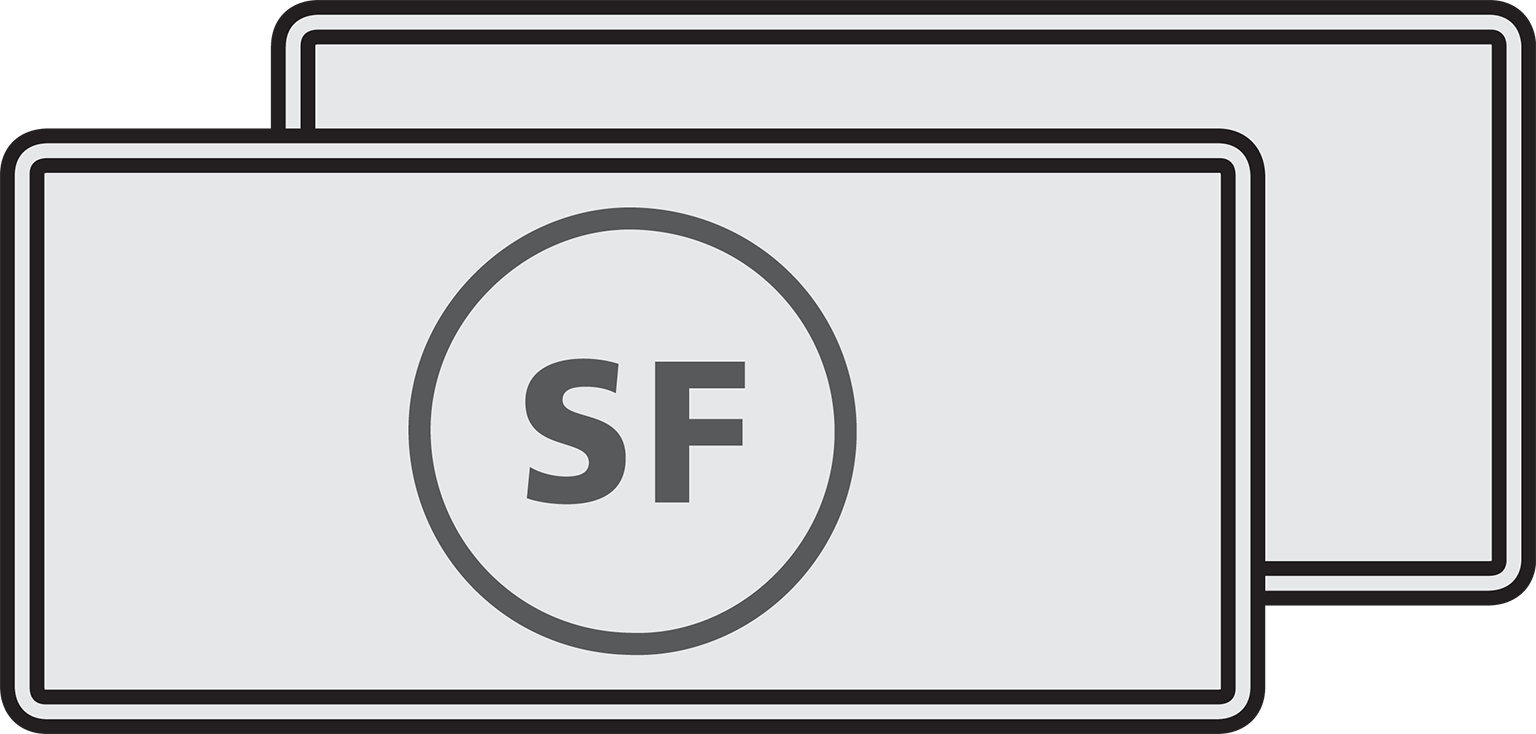
Need to know Before You Go
Average daily spend
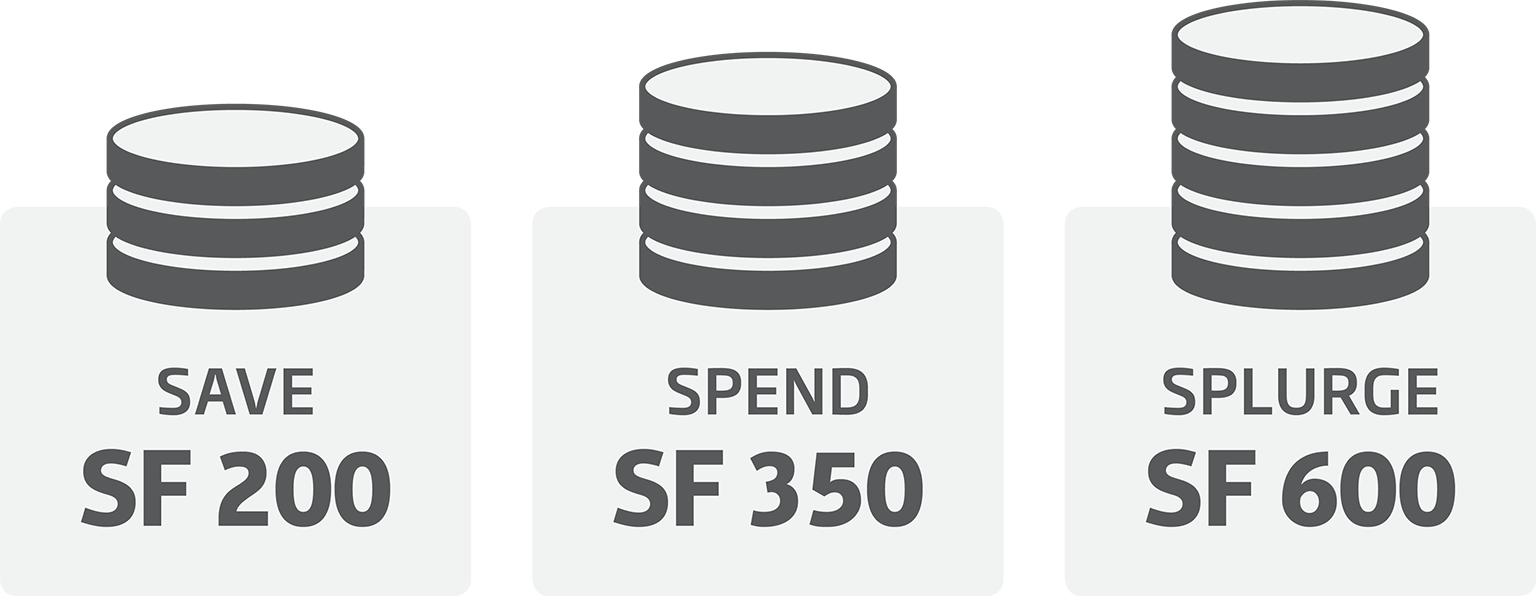
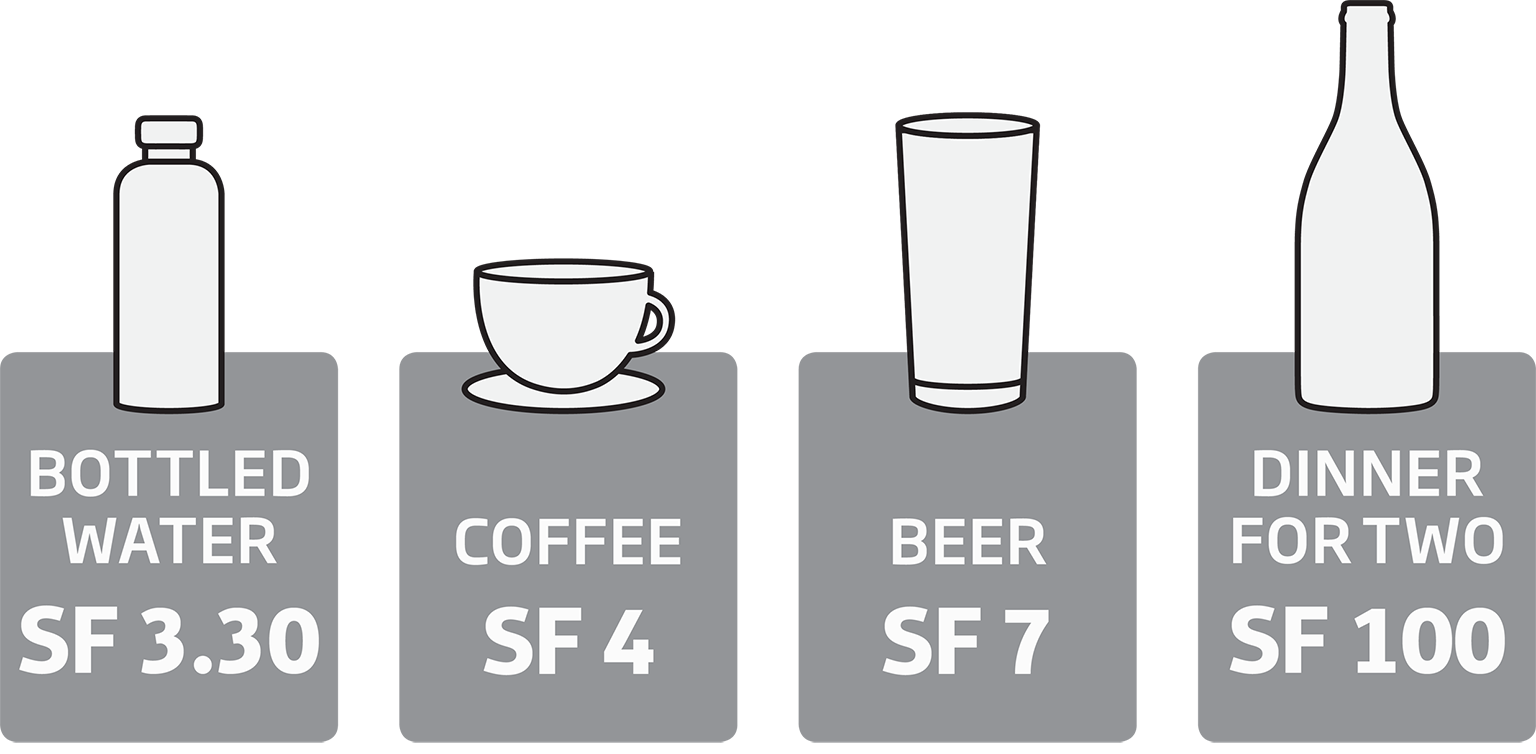
Need to know Before You Go
ESSENTIAL PHRASES
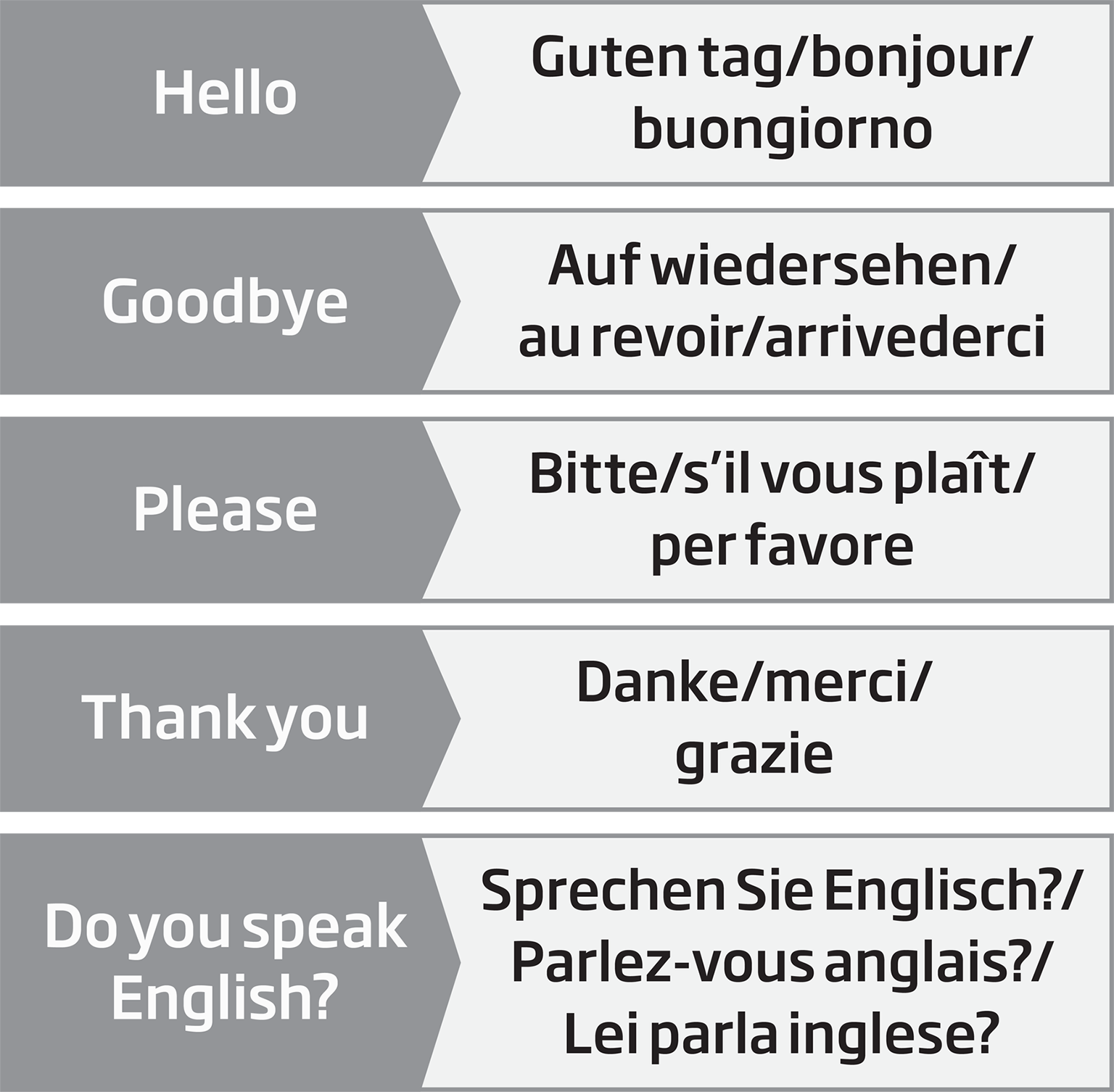
Need to know Before You Go
Electricity Supply
Power sockets are type J, fitting type J (3-pin) plugs and type C (2-pin) plugs. Standard voltage is 230V.


Need to know Before You Go
PUBLIC HOLIDAYS
| 1 Jan | New Year’s Day |
| 19 Apr | Good Friday |
| 30 May | Ascension Day |
| 1 Aug | National Day |
| 25 Dec | Christmas Day |
